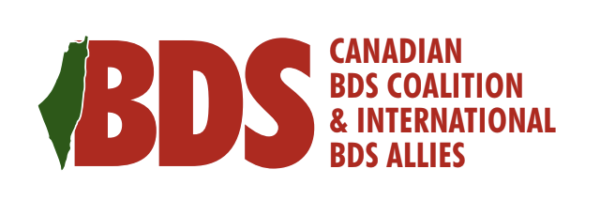Israeli apartheid isn’t a good look.
Despite the growing awareness of Israel’s crimes, several high-profile beauty brands still pour money into or operate within Israel with little regard for Palestinian lives. Below are some of the brands that should be avoided at all costs.
Chanel
Chanel recently made headlines after its CEO, Leena Nair, and Global Executive Chairman, Alain Wertheimer, announced a $4 million donation to Israel in the wake of October 7, 2023. Their internal memo made no mention of Israel’s massacres in Gaza. This lopsided stance led to calls for a boycott of Chanel from groups advocating for Palestinian rights.
Tory Burch
Tory Burch pledged donations to both Israelis and Palestinians—via the Red Cross and the Alliance for Middle East Peace (ALLMEP)—yet the company was still criticized by some who questioned whether the assistance was truly balanced. In contrast to other brands, Tory Burch did at least acknowledge the humanitarian crisis facing Palestinians. However, the brand has previously been accused of cultural appropriation of Palestinian designs.
Bath & Body Works
This American retailer has announced a major expansion in Israel, opening shops in Tel Aviv, Rehovot, Netanya, and Haifa. The company’s Israeli franchise partner, Delta Israel Brands, invests heavily in the Israeli market. Activists argue such expansions normalize Israel’s oppression of Palestinians and help funnel more financial resources into a state committing grave human rights violations.
Body Shop
The Body Shop is now owened Serruya Private Equity, a Markham Ontario based company. The Serruya family are founders of chain Yogen Fruz. Yogen Fruz and Serruya family are sponsors/donors and participants in the annual “Walk for Israel”. The Serruya Family Foundation (registered charity) has also made charitable donations to HRC (Honest Reporting Canada) who is responsible for heavily controlling the narrative of Israel in Canadian media.
Sephora
Owned by French luxury conglomerate LVMH, Sephora has been swept into controversy due to LVMH CEO Bernard Arnault’s direct investments in Israeli cybersecurity firms and the company’s broader ties to Israel. Activists have circulated petitions urging Sephora to discontinue products from brands linked to Israel. Though Sephora’s U.S. site does not ship to Israel, Sephora UK does—but not to Palestine.
Moroccanoil
Founded by Israeli entrepreneurs alongside Chilean-Canadian Carmen Tal, Moroccanoil faces boycott calls over alleged production in occupied Palestinian territories. Critics point to a lack of transparency regarding manufacturing locations and concern that it profits from regional resources without acknowledging Israeli violations. These issues are especially relevant to salon professionals who regularly stock and use the brand—some have already chosen to boycott Moroccanoil in solidarity with Palestinian rights.
Il Makiage
Il Makiage is an Israeli-founded makeup label. While it markets itself extensively through social media and influencer campaigns, the brand’s roots are unambiguously Israeli. Many supporters of Palestinian rights avoid purchasing from Il Makiage until Israel ends its aggression and upholds the rights of Palestinians. Il Makiage is currently sold online though their website and ships to Canada.
AHAVA
AHAVA’s flagship store and production facilities are based in Mitzpe Shalem, an illegal Israeli settlement in the occupied West Bank. The company profits from Dead Sea minerals extracted from occupied land, to which Palestinians have restricted access. AHAVA has long been a target of the Boycott, Divestment, and Sanctions activists due to these practices.
Yes To (formerly “Yes To Carrots”)
This brand is sold in Canada at retailers like Shoppers Drug Mart, Loblaws, and Walmart, yet it has drawn controversy for obscuring its original “Made in Israel” labels. However, the company quietly removed references to Dead Sea mud sourced from occupied Palestinian territories after inquiries about its ties to Israel. Critics argue this rebranding seeks to dodge boycott campaigns, noting Yes To has never explicitly confirmed it ended Israeli-based production.
Estée Lauder
This global cosmetics conglomerate that owns or holds controlling stakes in many popular brands in Canada, including MAC, Clinique, Bobbi Brown, Smashbox, and The Ordinary. The Lauder family—particularly Ronald Lauder—has long supported pro-Israel and Zionist organizations, prompting accusations that revenue from these brands may indirectly fund Israeli apartheid. We call for a boycott of Estée Lauder companies until they sever these ties.
Well.ca
Well.ca presents itself as a one-stop destination for “better-for-you everyday essentials” and emphasizes wellness. However, it carries products linked to Israeli enterprises, including brands sourcing ingredients from Israel such as Burt’s Bees. Selling such items conflicts with the retailer’s stated commitment to holistic well-being—especially given the broader context of Palestinian human rights abuses.
DesignMe Hair
DesignMe Hair is a Canadian indie brand founded in 2015, focusing on vegan, cruelty-free formulations. Headquartered in Dorval, Quebec, its CEO and Co-Founder Safir Shnayderman previously served as VP Sales at Moroccanoil, an Israeli-affiliated company, from 2012 to 2014. A Canadian Jewish News article also notes Shnayderman’s personal connection to the Israeli army through his late father.
Amika
Amika is a Brooklyn-based hair care brand co-founded by Israeli entrepreneurs Shay and Nir Kadosh, alongside Vita Raykhman and Chelsea Riggs. In 2022, the private investment firm Bansk Group acquired a majority stake in the company. According to sources such as The Islamic Information and Panjiva, Amika manufactures products in Israeli settlements.
Burt’s Bees
Burt’s Bees Product specifically says ingredient is sourced in Israel.
See this list as well:
https://masjidalaqsa.com/boycott-israeli-products-brands-list
Israel’s crimes won’t improve your beauty routine.
Say no to these brands and boycott them! By refusing to spend money on products that help fund or legitimize Israel’s genocidal campaign against Palestinians, we can demand corporate accountability. You are not powerless—there are many ethical alternatives available, and every dollar spent is a vote. With enough people speaking out and taking action, these companies may be forced to reconsider their support for Israel’s mass killing of children, ethnic cleansing, and Apartheid regime ensuring they are not complicit in these grave human rights abuses.

